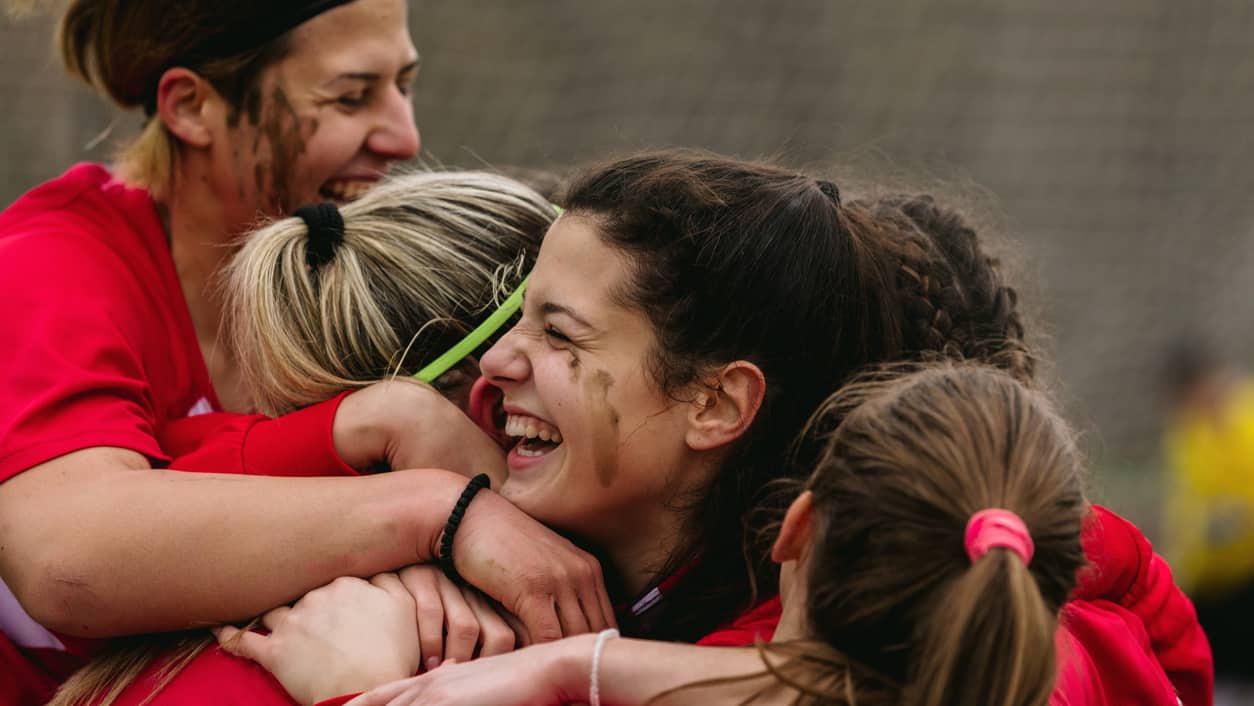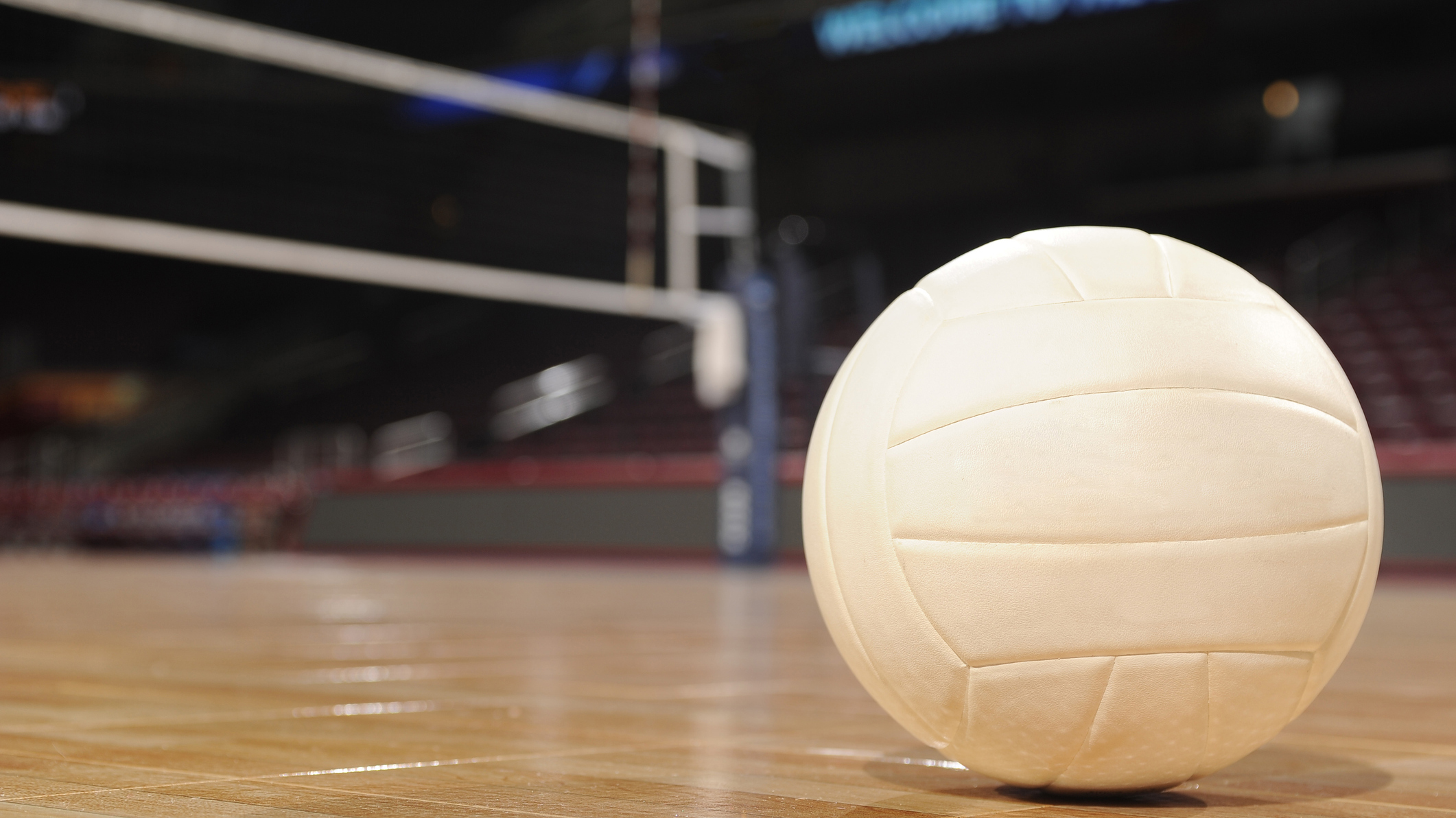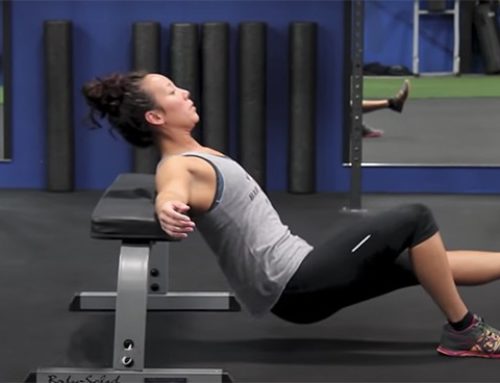Q&A with USSSA Florida Pride Pro Softball Player Jenn Salling
Entering only her third professional season, Jenn Salling has already compiled an impressive résumé. Currently the shortstop for the USSSA’s Florida Pride, Sallings was an All-American at the University Washington, where she helped the Huskies win a National Championship. She also plays for the Canadian National team. STACK Expert Matt Meinrod recently sat down with Sallings to get her opinions on the game, probe her motivation and pick up some nutrition and fitness advice.
STACK: How does softball differ in Canada from here in the United States? Is it as popular?
Salling: Yes and no. Yes because it has taken significant strides from a competitive and popularity standpoint since I left for school. On the other hand, no because if female athletes are not playing softball from a young age, it’s either soccer or hockey. I’m not sure if you are aware, but Canadians live, breathe, eat, and sleep hockey the majority of the time, both men and women.
STACK: How old were you when you started playing, and why did you want to play?
Salling: I was five when I started playing softball. My father had the biggest influence on me wanting to play the sport. I grew up around the softball field. My father was a catcher at a pretty elite level in men’s fast pitch, and ever since I was two weeks old, I was out at the softball field. After every one of my dad’s games, my dad and his teammates would throw me these incredibly high fly balls, play catch, and we would even set up imaginary “run down” situations to make it fun.
STACK: Did softball come naturally to you, or did you have to work hard at it?
Salling: No matter how gifted you are naturally, you always have to work hard. No athlete should ever think they are going to get better just by relying on their natural gifts. There is a quote that I think is absolutely awesome: “Hard work beats talent when talent doesn’t work hard.” A day off is a day for someone to get better, to beat you and surpasses you, even when you think talent comes naturally to you. Athletes that work hard day in and day out and that strive to improve will be the ones that come out on top in the end.
STACK: Due to the long Canadian winters, it must have been hard to practice. How were you able to find time to work on your skills?
Salling: I think the biggest thing that comes to mind when answering this question is accepting and adjusting. Growing up in a place where the fall and winter can be extremely cold and force you to train inside for several months was just something I was used to. I didn’t know any different. I was not going to allow the weather to hold me back, or make it an excuse to not get better. I may not be able to train on a softball field for 12 months out of the year, but I can hit in cages, train in gyms and use indoor football facilities that help improve my skills just as much as a softball field might.
STACK: You just finished your second year with National Pro Fastpitch and USSSA Pride. What are the major differences, on and off the field, between playing in college and playing professionally?
Salling: I would say that college is a little more structured compared to the professional level. In college, your day is filled with requirements such as weights in the a.m., classes, practice, meetings, study hall—and that schedule is pretty constant. At the professional level, you have more time to yourself. The way you prepare for a game is on you. Everyone knows what their body needs and what they have to do to get prepared for the game.
STACK: Do you give yourself time to relax in the off-season, or do you start training for next season right away?
Salling : I think it’s important to take time off and enjoy time to yourself. However, that time off doesn’t last too long. I find personally after a week or two I start to get really anxious and soon find myself back to the grind.
STACK: What kind of off-season training do you typically do?
Salling: Weight lifting, sprinting, med ball work, core work. I just started to do a lot of spinning. Also, as I’m getting older I’m starting to incorporate a lot more flexibility exercises, such as pilates and yoga. I used to just lift and do sprint work. But now I’m thoroughly enjoying trying different things and mixing my workouts up. It’s nice to have variety. I tend to get bored quickly.
STACK: Do you follow any specific diet to stay in top shape yearround?
Salling: No, I believe in having a good balance to your diet, and that includes enjoying maybe the not-so-great-nutritional-value foods every once in awhile. I believe that if “unhealthy” Things are consumed in moderation and “healthy” things are consumed more frequently, then diet-wise, I personally am happy.
STACK: What’s one thing you think young softball players should do to get noticed by coaches?
Salling: It’s what you do when no one is watching. Your actions determine your attitude, and your attitude determines the type of person/athlete that you are going to be. In addition, we all know that this game of softball is a game of failure. I feel like what will separate athletes from one another at a young age is the way the athlete handles failure. Failure is a constant in our game, so be the one that turns it into something positive and to learn from.
STACK: Where do you see yourself when you can no longer play softball?
Salling: Having a personal training business, possibly owning a gym. I’m looking to get certified after that happens. I just want to see where it goes and where it will take me. I have a passion for fitness, I know that much. I don’t really think about it all that much, as I just want to be in the moment and enjoy being healthy and playing for as long as I possibly can.
STACK: Anything you’d like to say to your fans?
Salling: To be honest, if I said all that I wanted to say to them, this answer would be as long as a 20-page paper. Your love, passion and loyalty for the game of softball and to all of us as players are immeasurable. We play this game not only because we love it, but also for you guys. For those young girls out there aspiring to be professional softball players, we take great pride in the idea of being a role model. If it were not for you guys, there would be no professional league.
Check out more softball content at STACK’s Softball section.
RECOMMENDED FOR YOU
MOST POPULAR
Q&A with USSSA Florida Pride Pro Softball Player Jenn Salling
Entering only her third professional season, Jenn Salling has already compiled an impressive résumé. Currently the shortstop for the USSSA’s Florida Pride, Sallings was an All-American at the University Washington, where she helped the Huskies win a National Championship. She also plays for the Canadian National team. STACK Expert Matt Meinrod recently sat down with Sallings to get her opinions on the game, probe her motivation and pick up some nutrition and fitness advice.
STACK: How does softball differ in Canada from here in the United States? Is it as popular?
Salling: Yes and no. Yes because it has taken significant strides from a competitive and popularity standpoint since I left for school. On the other hand, no because if female athletes are not playing softball from a young age, it’s either soccer or hockey. I’m not sure if you are aware, but Canadians live, breathe, eat, and sleep hockey the majority of the time, both men and women.
STACK: How old were you when you started playing, and why did you want to play?
Salling: I was five when I started playing softball. My father had the biggest influence on me wanting to play the sport. I grew up around the softball field. My father was a catcher at a pretty elite level in men’s fast pitch, and ever since I was two weeks old, I was out at the softball field. After every one of my dad’s games, my dad and his teammates would throw me these incredibly high fly balls, play catch, and we would even set up imaginary “run down” situations to make it fun.
STACK: Did softball come naturally to you, or did you have to work hard at it?
Salling: No matter how gifted you are naturally, you always have to work hard. No athlete should ever think they are going to get better just by relying on their natural gifts. There is a quote that I think is absolutely awesome: “Hard work beats talent when talent doesn’t work hard.” A day off is a day for someone to get better, to beat you and surpasses you, even when you think talent comes naturally to you. Athletes that work hard day in and day out and that strive to improve will be the ones that come out on top in the end.
STACK: Due to the long Canadian winters, it must have been hard to practice. How were you able to find time to work on your skills?
Salling: I think the biggest thing that comes to mind when answering this question is accepting and adjusting. Growing up in a place where the fall and winter can be extremely cold and force you to train inside for several months was just something I was used to. I didn’t know any different. I was not going to allow the weather to hold me back, or make it an excuse to not get better. I may not be able to train on a softball field for 12 months out of the year, but I can hit in cages, train in gyms and use indoor football facilities that help improve my skills just as much as a softball field might.
STACK: You just finished your second year with National Pro Fastpitch and USSSA Pride. What are the major differences, on and off the field, between playing in college and playing professionally?
Salling: I would say that college is a little more structured compared to the professional level. In college, your day is filled with requirements such as weights in the a.m., classes, practice, meetings, study hall—and that schedule is pretty constant. At the professional level, you have more time to yourself. The way you prepare for a game is on you. Everyone knows what their body needs and what they have to do to get prepared for the game.
STACK: Do you give yourself time to relax in the off-season, or do you start training for next season right away?
Salling : I think it’s important to take time off and enjoy time to yourself. However, that time off doesn’t last too long. I find personally after a week or two I start to get really anxious and soon find myself back to the grind.
STACK: What kind of off-season training do you typically do?
Salling: Weight lifting, sprinting, med ball work, core work. I just started to do a lot of spinning. Also, as I’m getting older I’m starting to incorporate a lot more flexibility exercises, such as pilates and yoga. I used to just lift and do sprint work. But now I’m thoroughly enjoying trying different things and mixing my workouts up. It’s nice to have variety. I tend to get bored quickly.
STACK: Do you follow any specific diet to stay in top shape yearround?
Salling: No, I believe in having a good balance to your diet, and that includes enjoying maybe the not-so-great-nutritional-value foods every once in awhile. I believe that if “unhealthy” Things are consumed in moderation and “healthy” things are consumed more frequently, then diet-wise, I personally am happy.
STACK: What’s one thing you think young softball players should do to get noticed by coaches?
Salling: It’s what you do when no one is watching. Your actions determine your attitude, and your attitude determines the type of person/athlete that you are going to be. In addition, we all know that this game of softball is a game of failure. I feel like what will separate athletes from one another at a young age is the way the athlete handles failure. Failure is a constant in our game, so be the one that turns it into something positive and to learn from.
STACK: Where do you see yourself when you can no longer play softball?
Salling: Having a personal training business, possibly owning a gym. I’m looking to get certified after that happens. I just want to see where it goes and where it will take me. I have a passion for fitness, I know that much. I don’t really think about it all that much, as I just want to be in the moment and enjoy being healthy and playing for as long as I possibly can.
STACK: Anything you’d like to say to your fans?
Salling: To be honest, if I said all that I wanted to say to them, this answer would be as long as a 20-page paper. Your love, passion and loyalty for the game of softball and to all of us as players are immeasurable. We play this game not only because we love it, but also for you guys. For those young girls out there aspiring to be professional softball players, we take great pride in the idea of being a role model. If it were not for you guys, there would be no professional league.
Check out more softball content at STACK’s Softball section.












